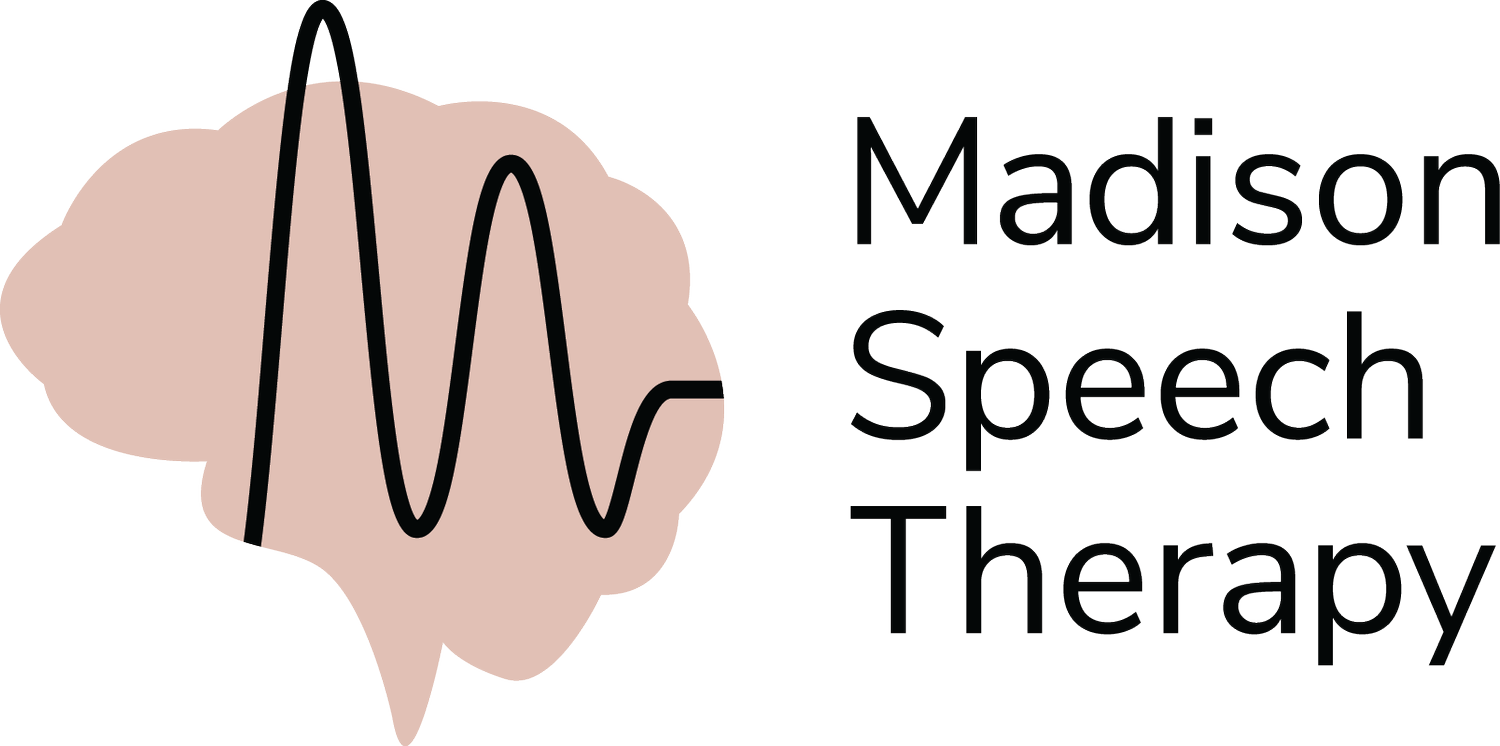Speech Language Pathology Services
Therapy techniques founded in research and innovation
Cognitive Rehabilitation
Cognition or 'thinking skills' are skills needed to complete daily tasks like driving to work, organizing your mail, and cooking dinner. There are many potential causes of cognitive impairments including traumatic brain injury, stroke, neurodegenerative diseases like Parkinson's and Multiple Sclerosis, and non-traumatic brain injury including encephalopathy and brain tumor resection.
Your SLP specializes in rehabilitation of these types of injuries and impairments and can help you improve:
Attention
Memory
Organization
Planning
Judgement
Self-awareness skills
Personality Changes
....so you can get back to doing what brings you joy!
Certifications:
Language, Speech, and Voice
Communication is critical for making social connections, getting the help you need, and understanding the world around you.
Communication skills include the ability to:
Speak clearly
Find the words you want to say
Use appropriate facial expression and tone
Understand what others tell you
Express complex ideas and opinions
Request your wants and needs
Your SLP specializes in rehabilitation of the following communication impairments:
Aphasia
Acquired Apraxia of Speech
Dysarthria
Stuttering
Voice Changes
Speech Clarity (Accent Modification/Accent Reduction)
...using evidence based treatment approaches that are customized to meet your needs.
Certifications & Specialty Areas:
SPEAK OUT! Voice Therapy
Augmentative & Alternative Communication (AAC) device assessment
Experience with eyegaze access for AAC users
Swallowing Skills
Dysphagia, a swallowing disorder, is a common complication of stroke, traumatic brain injury, and dementia. Swallowing disorders are complex requiring an advanced skill set and continuing education.
For more information about swallowing difficulties please visit the National Foundation of Swallowing Disorders and the Dysphagia Outreach Project websites.
Symptoms of dysphagia include:
Coughing
Choking
Food feeling 'stuck'
Food pocketing in the mouth
Aspiration pneumonia
Pain when swallowing or chewing
Your SLP has completed advanced continuing education and training in this area and will help you achieve your eating and swallowing goals.
Certifications & Therapy Tools:
Respiratory Muscle Training (RMT) - The Breather & EMST 150/75
MobiliT sEMG biofeedback for swallow exercise training
ARK-J Training for treating trismus
Tongueometer tongue strengthening device
Swallowing testing using FEES
Private Pay Services
Intensive Comprehensive Aphasia Treatment Program (ICAP)
Intensive aphasia therapy includes anywhere from 10-25 hours of aphasia treatment per week over several weeks focusing on more therapy hours over a shorter time period to maximize the benefits of speech therapy. These programs have been around for over 70 years and research has shown this approach results in faster, more satisfying outcomes. Intensive aphasia therapy focuses on several areas of language at once including speaking, understanding, reading, and writing and provides enough time to identify the best aphasia approach to meet their unique needs. No two people with aphasia are the same! Each person needs individualized treatment that is customized to their strengths and growth areas.
Cognitive Wellness & Education
Speech therapists are skilled providers of counseling services to support individuals coping with new and chronic health conditions. Goals can include mindfulness training, using cognitive strategies to reduce "brain fatigue" after a stroke, and education sessions focused on empowering the client to take charge of their recovery.
Dementia Counseling & Caregiver Training
Madison Speech Therapy uses a Montessori approach to care which focuses on supporting older adults in environments adapted to memory loss, communication changes, and sensory difficulties. The therapist empowers the client to engage meaningfully in their social connections and communities to keep them in their homes longer. Additionally, respite time can be added at the beginning and/or end of therapy sessions to provide rest for care partners.
Goals include:
Home assessment (environment and safety check)
Task analysis - evaluating familiar routines
Skill demonstration and family/client practice
Incorporate movement, music, and art into daily activities
Increase independence and enjoyment in daily life
